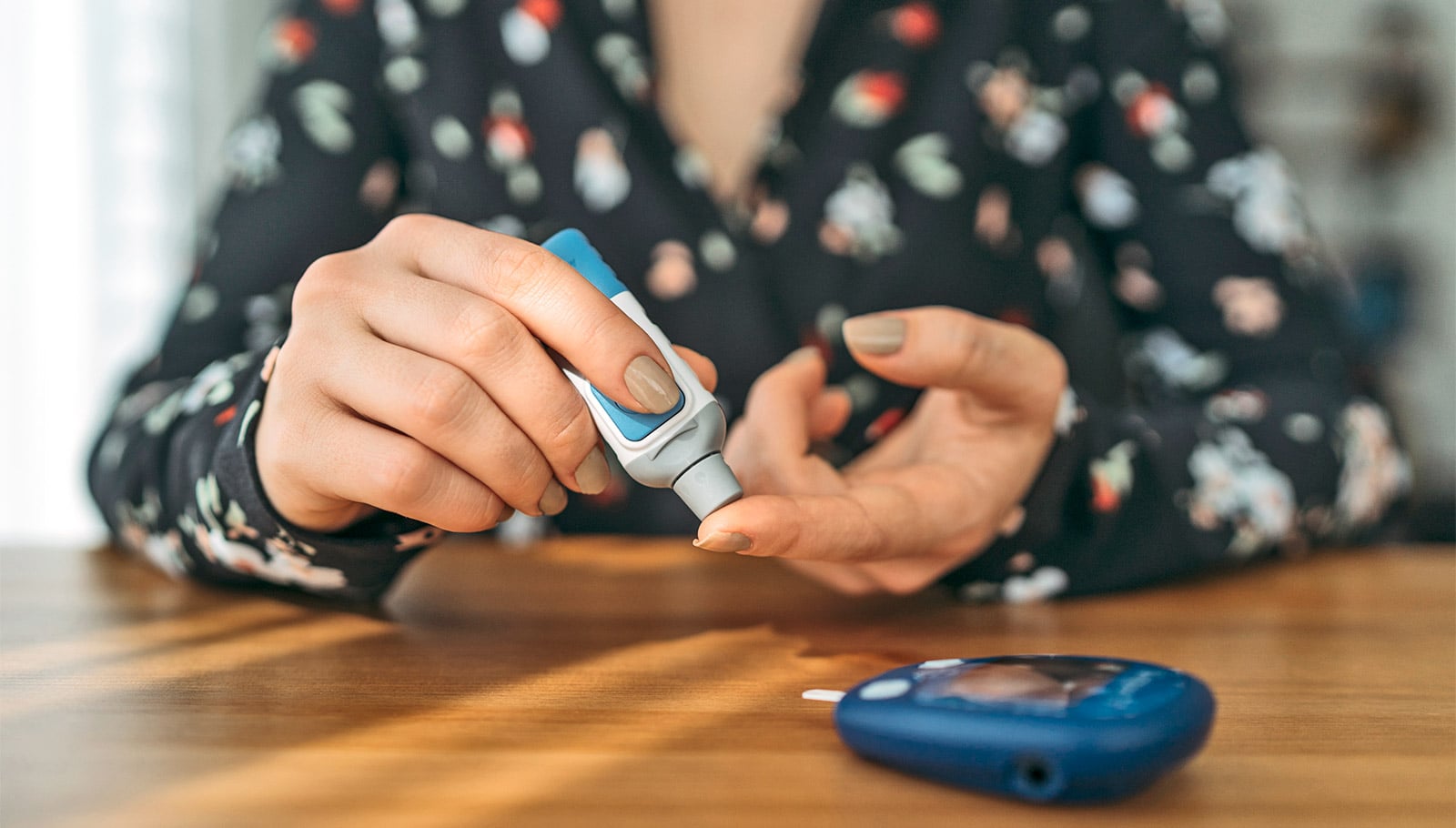Large swings in blood glucose tied to type 1 diabetes may affect the brain’s ability to quickly process information, according to a new study.
The research also shows that these changes may more severely affect some individuals, including older people and those with certain health conditions.
As reported in npj Digital Medicine, the study found that very low and very high glucose levels were associated with slower and less accurate cognitive processing speed, with the most dramatic effect seen at low glucose levels. Optimal cognitive processing speed—the ability to respond to and process information quickly—is important for a wide variety of everyday tasks and contexts, from driving and operating machinery to decision-making in fast-paced environments.
“Our findings suggest that minimizing blood glucose extremes could help people with type 1 diabetes to improve not just their health but their cognition as well,” says co-senior author Naomi Chaytor, a professor and chair in the Washington State University Elson S. Floyd College of Medicine.
“And because diabetes is a cognitively demanding disease that requires hourly decisions on how much insulin to take based on various factors, this could also potentially prevent a situation where glucose lows and spikes send people into a spiral of worsening diabetes self-management.”
While previous studies had established a connection between low blood glucose and cognitive function in a laboratory setting, the researchers say theirs is the first to look at the impact of glucose fluctuations on cognition in individuals with type 1 diabetes going about their daily lives.
Using digital sensors that measure glucose every few minutes and smartphone-based cognitive testing, the researchers captured repeated data on glucose levels and cognitive performance in 200 participants recruited at four major US diabetes centers. Throughout the 15-day study, participants completed cognitive tests three times a day and had glucose measurements taken every five minutes.
Relating cognitive test performance to glucose levels measured at the time of testing, the researchers determined that cognitive processing speed was worse when glucose was much lower or much higher than usual. They also tested participants sustained attention, an element of cognition that represents the ability to stay focused on a task over an extended amount of time but found that it was not significantly affected by glucose fluctuations.
“It’s possible that sustained attention is impacted by high or low glucose that persists over longer periods of time, even though it does not appear to be affected by the short-term, moment-to-moment fluctuations in glucose that we looked at in this study,” says Laura Germine, co-senior author and director of McLean Hospitals Laboratory for Brain and Cognitive Health Technology.
Comparing between participants, the researchers saw differences in the extent to which changes in glucose affected cognition and identified factors that could predict who might be more at risk of severe impacts. They found this to be the case for older people, as well as those with certain health conditions, such as diabetes-related eye, kidney, and nerve damage; fatigue; and sleep apnea risk.
“In trying to understand how diabetes impacts the brain, our research shows that it is important to consider not only how people are similar, but also how they differ,” says first author Zoë Hawks, a research investigator at McLean Hospital.
One surprise discovery was that participants peak cognitive performance coincided with glucose levels that were slightly above their normal range, though performance dropped off as glucose levels rose even further.
“This was an important finding because people with diabetes often report feeling better at a glucose level that is higher than what is considered healthy,” Chaytor says, adding that it’s possible that the brain habituates itself to a glucose level that it is used to.
She says a next step in this research is to see whether the glucose level associated with peak performance shifts down into the normal range when the amount of time spent above range is reduced, which can be achieved through use of automated diabetes management systems.
Ultimately, the researchers hope to find ways to help people with type 1 diabetes function at their best cognitively. Given rising evidence that people with type 1 diabetes may be more at risk for cognitive decline and dementia, this could also potentially have long-term health benefits.
Primary funding for the study came from the National Institute of Diabetes and Digestive and Kidney Diseases, an agency within the National Institutes of Health.
Source: Washington State University



